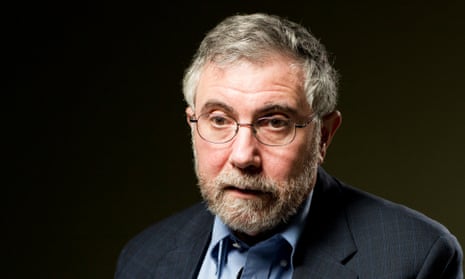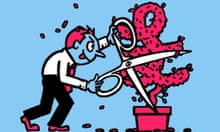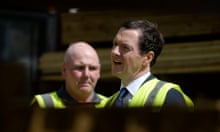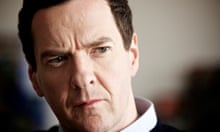Plans by the Conservatives and Labour for a fresh round of deficit reduction after the general election are being strongly attacked by one of the world’s leading economists who warns that renewed austerity will hold back a still-incomplete recovery.
Paul Krugman, a Nobel prize-winning US economist, challenges David Cameron’s claim to have rescued the economy by stressing that growth only resumed halfway through the 2010-15 parliament once the coalition abandoned its plan to repair the public finances within five years.
Krugman says the Conservatives are pledged to repeat their mistakes by imposing deep spending cuts if they win next week’s election, and criticises Labour for its failure to oppose austerity.
“Harsh austerity in depressed economies isn’t necessary, and does major damage when it is imposed. That was true of Britain five years ago – and it’s still true today,” he writes in a Guardian article.
Krugman’s comments come as the Office for National Statistics reports that the UK’s quarterly growth rate halved to 0.3% in the first three months of 2015, a much worse than expected performance.
The Conservatives, Labour and the Liberal Democrats are all committed to deficit reduction after the election, but Krugman says the UK seems “stuck on obsessions that have been mainly laughed out of the discourse elsewhere”.
The Princeton economist says: “Cameron is campaigning largely on a spurious claim to have ‘rescued’ the British economy – and promising, if he stays in power, to continue making substantial cuts in the years ahead.
“Labour, sad to say, are echoing that position. So both major parties are in effect promising a new round of austerity that might well hold back a recovery that has, so far, come nowhere near to making up the ground lost during the recession and the initial phase of austerity.”
Krugman says the government has falsely sought to claim that the economy’s recovery was due to austerity when in fact recovery only began once the coalition adopted a less aggressive approach to deficit reduction in 2012. A one-off tightening of fiscal policy (raising taxes or cutting spending) would produce a one-off hit to the economy, not a permanent reduction in the growth rate, he says.
“A return to growth after austerity has been put on hold is not at all surprising. As I pointed out recently, if this counts as a policy success, why not try repeatedly hitting yourself in the face for a few minutes? After all, it will feel great when you stop.”
Although the shadow chancellor, Ed Balls, predicted in 2010 that austerity would lead to lower growth and a higher deficit than the government was expecting, Krugman expresses disappointment at the failure of the opposition to challenge the coalition’s narrative.
“It has been astonishing, from a US perspective, to witness the limpness of Labour’s response to the austerity push. Britain’s opposition has been amazingly willing to accept claims that budget deficits are the biggest economic issue facing the nation, and has made hardly any effort to challenge the extremely dubious proposition that fiscal policy under Blair and Brown was deeply irresponsible – or even the nonsensical proposition that this supposed fiscal irresponsibility caused the crisis of 2008-2009.
“Why this weakness? In part it may reflect the fact that the crisis occurred on Labour’s watch; American liberals should count themselves fortunate that Lehman didn’t fall a year later, with Democrats holding the White House. More broadly, the whole European centre-left seems stuck in a kind of reflexive cringe, unable to stand up for its own ideas. In this respect Britain seems much closer to Europe than it is to America.”








Comments (…)
Sign in or create your Guardian account to join the discussion